World Kindness Day is November 13th and has been celebrated in many countries around the world since 1998. World Kindness Day was developed to promote good deeds in communities and focus on how kindness binds us together. Around the world are efforts to encourage “random acts of kindness” for others and acting in a more kind way.
We decided to look at kindness in general through a behavioral science lens.
Webster’s definition of “kind” is “of a sympathetic or helpful nature; being gentle.” In other words, kindness is basically doing something nice for someone. A Mother Jones article about World Kindness day, by Daniel King, states, “Don’t worry, kindness is not niceness,” so we looked at how the University of Santa Clara differentiates between KIND and NICE.
They used an example of how holding the door for others can be described as either “nice” or “kind.” If the underlying motivation is to create a favorable impression for the purpose of asking for a favor later, then the action can be considered NICE due to its pleasing effect.
On the other hand, if the motivation is to spare the other person from extra effort or inconvenience, then the action can be considered KIND (as well as nice) if it pleases the other person.
We encourage each and every one of you around the world today to show some act of kindness to a loved one, friend or stranger. And we hope you enjoy this episode.
© 2020 Behavioral Grooves
Links
Science Made Fun: Celebrating World Kindness Day: https://sciencemadefun.net/blog/world-kindness-day/
World Kindness Day: https://worldkindness.org/be-involved/
Mother Jones: Kindness Day is Actually a Day: https://www.motherjones.com/recharge/2020/10/world-kindness-day/
World Kindness Day in Wikipedia: https://en.wikipedia.org/wiki/World_Kindness_Day
Psychology Today: The Importance of Kindness: https://www.psychologytoday.com/us/blog/pieces-mind/201712/the-importance-kindness
Time: Random Acts of Kindness make Marriage Better: https://time.com/4674982/kindness-compassion-marriage/
Rewards of Kindness Hui, B. P. H., Ng, J. C. K., Berzaghi, E., Cunningham-Amos, L. A., & Kogan, A. (2020). Rewards of kindness? A meta-analysis of the link between prosociality and well-being. Psychological Bulletin.: https://doi.apa.org/doiLanding?doi=10.1037%2Fbul0000298
Psychology Today: Random Acts of Kindness Matter to Your Well Being: https://www.psychologytoday.com/us/blog/emotional-nourishment/201711/why-random-acts-kindness-matter-your-well-being
Being Kind, Not Nice: https://www.scu.edu/the-big-q/being-nice-vs-being-kind/#:~:text=%E2%80%9CNice%E2%80%9D%20is%20defined%20as%20%E2%80%9C,way%20they%20treat%20each%20other.
More Episodes
How Do We Deal with Disinformation?
 2020-11-11
2020-11-11
Elspeth Kirkman and Michael Hallsworth on Designing Behavioral Interventions
 2020-11-08
2020-11-08
Iowa Caucus Conspiracy Theories – How to Inoculate Yourself
 2020-11-05
2020-11-05
Rippling with Jez Groom and April Vellacott
 2020-11-01
2020-11-01
Grooving: The Single Largest Driver of Misinformation
 2020-10-31
2020-10-31
Vote Now (for Behavioral Grooves)
 2020-10-30
2020-10-30
Play, Reciprocity and Context: The Keys to Happy Communities with Jessica Mayhew
 2020-10-28
2020-10-28
Kwame Christian: On Compassionate Curiosity, Social Justice Conversations, and Cinnamon Toast Crunch
 2020-10-25
2020-10-25
Matt Johnson & Prince Ghuman on Mid-Liminal Marketing and the Ethics of Applied Neuroscience
 2020-10-18
2020-10-18
Annie Duke on How to Decide
 2020-10-11
2020-10-11
Andy Luttrell: Pro’s and Con’s of Persuasion When Issues are Moralized
 2020-10-05
2020-10-05
Secrets to a Successful Marriage with Eli Finkel
 2020-09-27
2020-09-27
Grooving: Colleges and the Coronavirus
 2020-09-23
2020-09-23
How to Talk to Your Friends About Their Conspiracy Theories with Eric Oliver
 2020-09-20
2020-09-20
Self Control, Belonging, and Why Your Most Dedicated Employees Are the Ones To Watch Out For with Roy Baumeister
 2020-09-12
2020-09-12
Seven Questions to Assess the Psychological Safety of Your Teams with Susan Hunt Stevens
 2020-09-06
2020-09-06
Eugen Dimant, PhD: What To Do About Bad Apples
 2020-08-30
2020-08-30
Working through the Stages of Grief, Pandemics and the Psychology of Protests with Nicole Fisher
 2020-08-23
2020-08-23
How Babies’ Faces on Shop Doors Can Reduce Crime: With Tara Austin
 2020-08-16
2020-08-16
Create your
podcast in
minutes
- Full-featured podcast site
- Unlimited storage and bandwidth
- Comprehensive podcast stats
- Distribute to Apple Podcasts, Spotify, and more
- Make money with your podcast
It is Free
You may also like
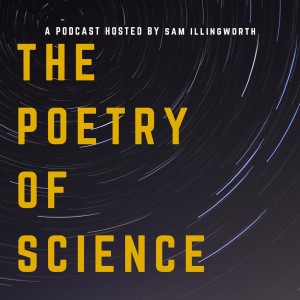
The Poetry of Science

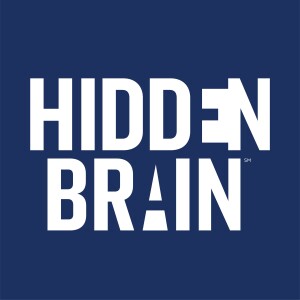
Hidden Brain


Something You Should Know


The Marginal Revolution Podcast

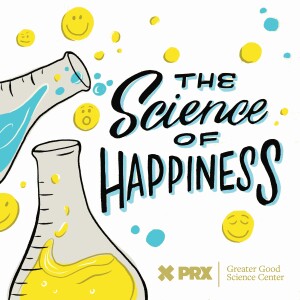
The Science of Happiness


- Privacy Policy
- Cookie Policy
- Terms of Use
- Consent Preferences
- Copyright © 2015-2024 Podbean.com

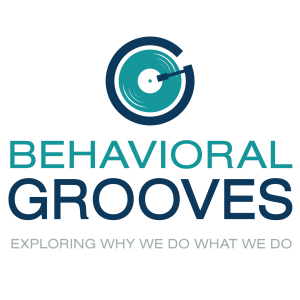
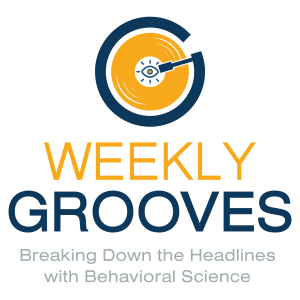

 iOS
iOS Android
Android